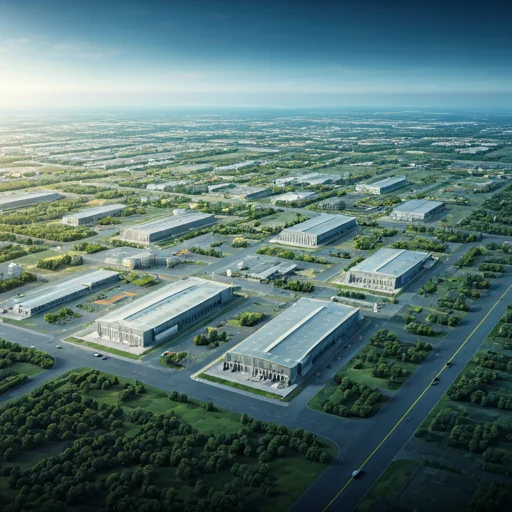Decentralized Warehousing: A Strategic Approach To Streamlining Supply Chains

Businesses are always searching for ways to manage and transform their supply chains to be more efficient and flexible.
The logistics industry is constantly evolving, and decentralized warehousing is a strategic way for businesses to improve their inventory management, increase response to customer demand, and reduce costs – just a few benefits that lead to a resilient supply chain.
Unlike traditional centralized warehousing, which relies on one or a few facilities, decentralized warehousing involves inventory being distributed across multiple warehouse locations that are strategically placed.
As companies adapt to the demands of the global marketplace, decentralized warehousing is proving to be an essential component in supply chain success.
Advantages of Decentralized Warehousing
Many big-named businesses, including Amazon, Zara, Walmart, and Target, use a decentralized warehousing system.
These companies serve a massive customer base, and decentralized warehousing allows them to keep up with demand by strategically placing inventory closer to key markets, which allows for faster delivery times.
Not only does it allow for faster delivery times, but each warehouse can be tailored to meet the specific needs of a particular region, such as popular products or trends in an area – contributing to increased customer satisfaction.
Quicker delivery times are closely associated with reduced transportation costs because the distance between the warehouse and the customer is closer, making last-mile delivery more cost-effective.
A decentralized warehousing system allows for an overall more resilient supply chain. Businesses can scale operations by adding new warehouses in response to increased demand without overwhelming another warehouse.
Having a decentralized warehousing system can be beneficial in various aspects.
In terms of risk management, if one warehouse is facing issues such as being affected by a natural disaster or plagued with technical difficulties, other warehouses can continue working to fulfill orders without causing massive disruptions.
The risk of stockouts or overstocking is reduced due to having inventory closer to a demand center, which means inventory levels can be adjusted more efficiently, leading to better inventory management.

Disadvantages of Decentralized Warehousing
Although decentralized warehousing offers a myriad of advantages for businesses that opt for it, the system also has some drawbacks.
Businesses need to consider an increase in overhead costs, including utilities, rent, labor, and equipment for multiple warehouses.
Investment in technology and infrastructure is vital to ensure the success of decentralized warehousing operations; if a business does not have adequate resources, then facilities cannot run effectively.
Decentralized warehouses can bring coordination challenges, too.
Coordinating inventory across multiple locations is complex, and ensuring that inventory is replenished and orders are fulfilled in the right location and in a timely manner can prove to be challenging.
Reverse logistics is an integral part of the industry, especially in the retail sector, where it’s common for many consumers to exchange or return their purchases.
Handling returns in a decentralized system can be more complicated than in a centralized system because some products may need to be sent to a particular warehouse.
If this is the case, the process can involve additional transportation costs, coordination issues, and an increased chance of disruptions or delays.
As long as businesses are proactive and have the resources and skills, they can mitigate any risks or disadvantages associated with the decentralized system and be wholly successful.
Decentralized warehousing represents a transformative shift in logistics, with many corporations and businesses relying on the model for their operations.
This system allows for scalability and increased efficiency in a climate where e-commerce and the expectations of consumers are constantly changing.
Decentralization enables companies to offer quicker deliveries, cater to trends, and build a stronger, more dependable supply chain.
It plays a vital role in the industry and is a cornerstone of modernization.



